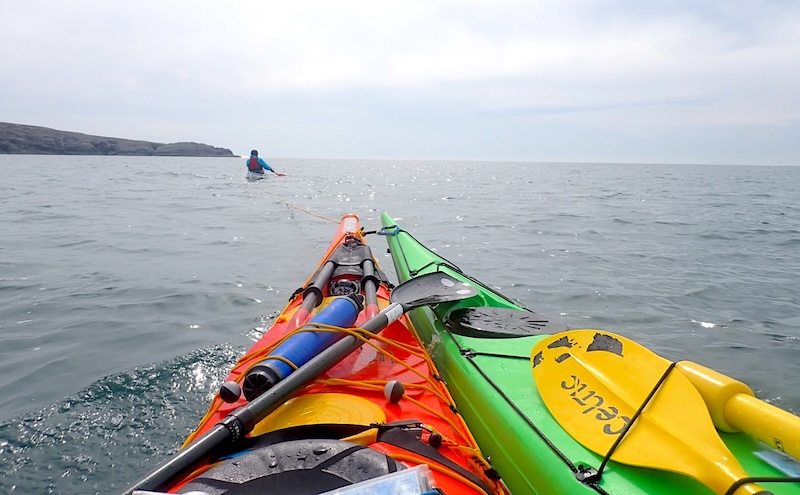Sea Kayak Safety and Rescue
The Sea Kayak Safety and Rescue course
The Sea Kayak Safety and Rescue course provides paddlers with the safety and rescue skills required to operate safely and be able to deal with common problems on the sea, in both sheltered and moderate conditions. The course is suitable for any sea kayakers who want to paddle more safely.

There’s more information on the British Canoeing Awarding Body website.
Prerequisites
There are no formal prerequisites for this course, but you need to have the ability to handle your boat on the sea and have the boat control required to maneuver your boat close to another in order to carry out rescues. You should either hold the BCAB Sea Kayak Award or have a similar level of ability.
Course programme
This is a one-day course, with most of the time spent on the water. Many of the sessions will involve getting wet, so it’s a good idea to have a drysuit, or to choose a warm time of the year. We’ll cover:
Where to find information to plan a day on the sea
Safety frameworks that groups can adopt to reduce the chance of things going wrong
Contact and towing rescues - how to help paddlers in difficuly
Self-rescues - what to do if you end up in the water next to your boat
How to rescue a fellow paddler who has ended up swimming
How to deal with some common equipment failures and problems
How to look after casualties and get them back to shore
Equipment
You will need to bring your own sea kayak and equipment for the course. Essential equipment includes:
- A closed-cockpit sealed bulkhead sea kayak, with toggles, decklines and hatches in good condition
- Paddle
- Dry suit (or wetsuit and paddling jacket) - some of the course sessions will require immersion
- Warm base layers (synthetic/wool), and extra/spare layers in a drybag in case you get cold or wet
- Footwear suitable for scrambling on wet rocks - neoprene boots or similar
- Buoyancy aid
- Helmet
- Neoprene spraydeck
- Towline
- Knife (in case of dangerous entanglements of the towline)
- Sun cream, sunglasses and cap
- Warm hat and spare clothes
- Food for lunch, plenty of snacks and water, with appropriate dry bags
- Any personal medication and bags to keep this dry
Relevant policies/terms
This course will be run under our policies (including the cancellation policy), laid out here and the Paddles Up Training policies which can be found here. The Paddles up training policies include information on how they’ll use the data that we share with them for certification, equality and diversity, special considerations and reasonable adjustments among other things.
Contacting us
Our contact details are on the home page of this site - please do get in touch if you have any questions.
We’re always keen to get feedback from those who we coach. Feel free to provide feedback in person or by email. I have an online feedback form here.